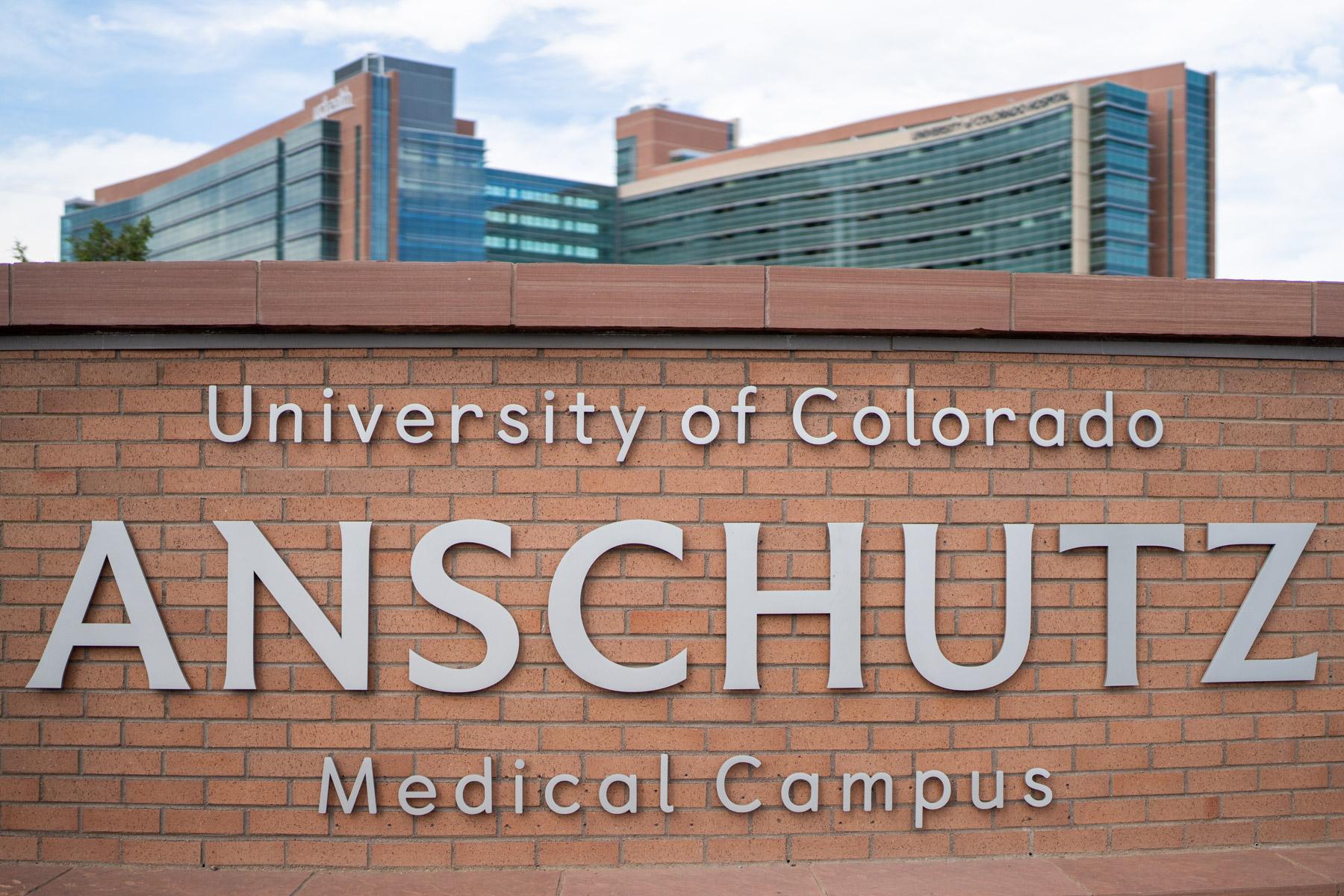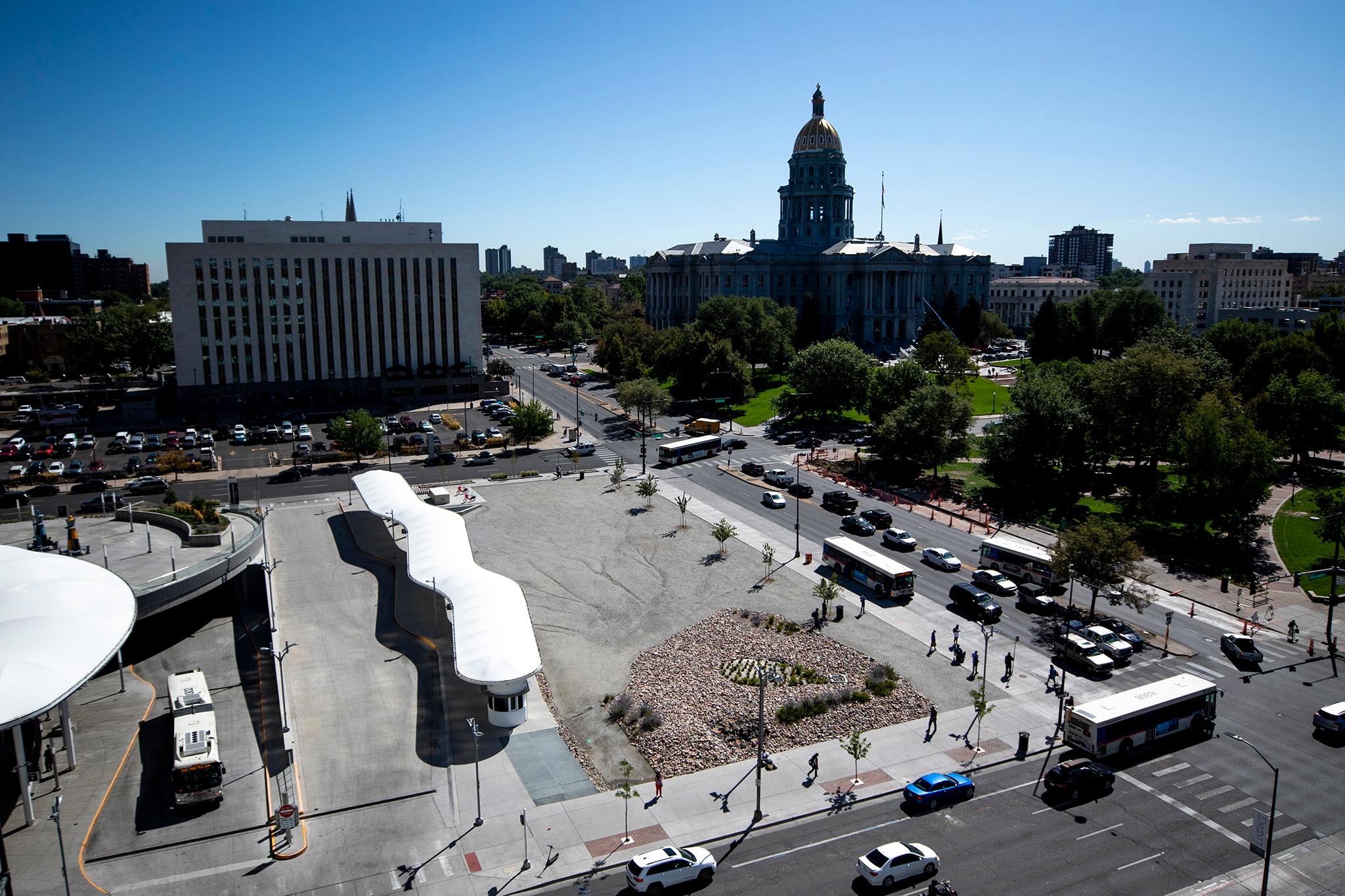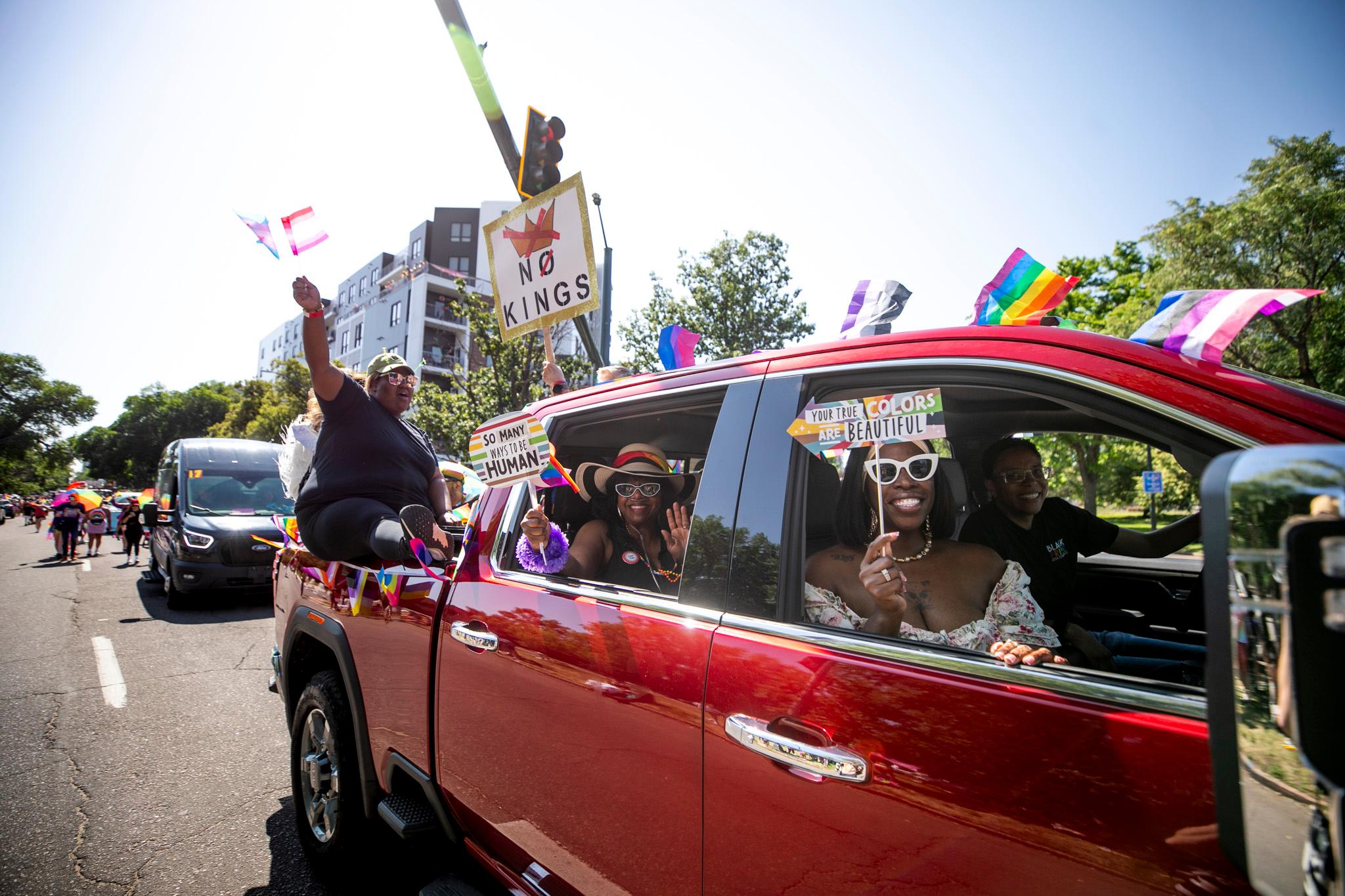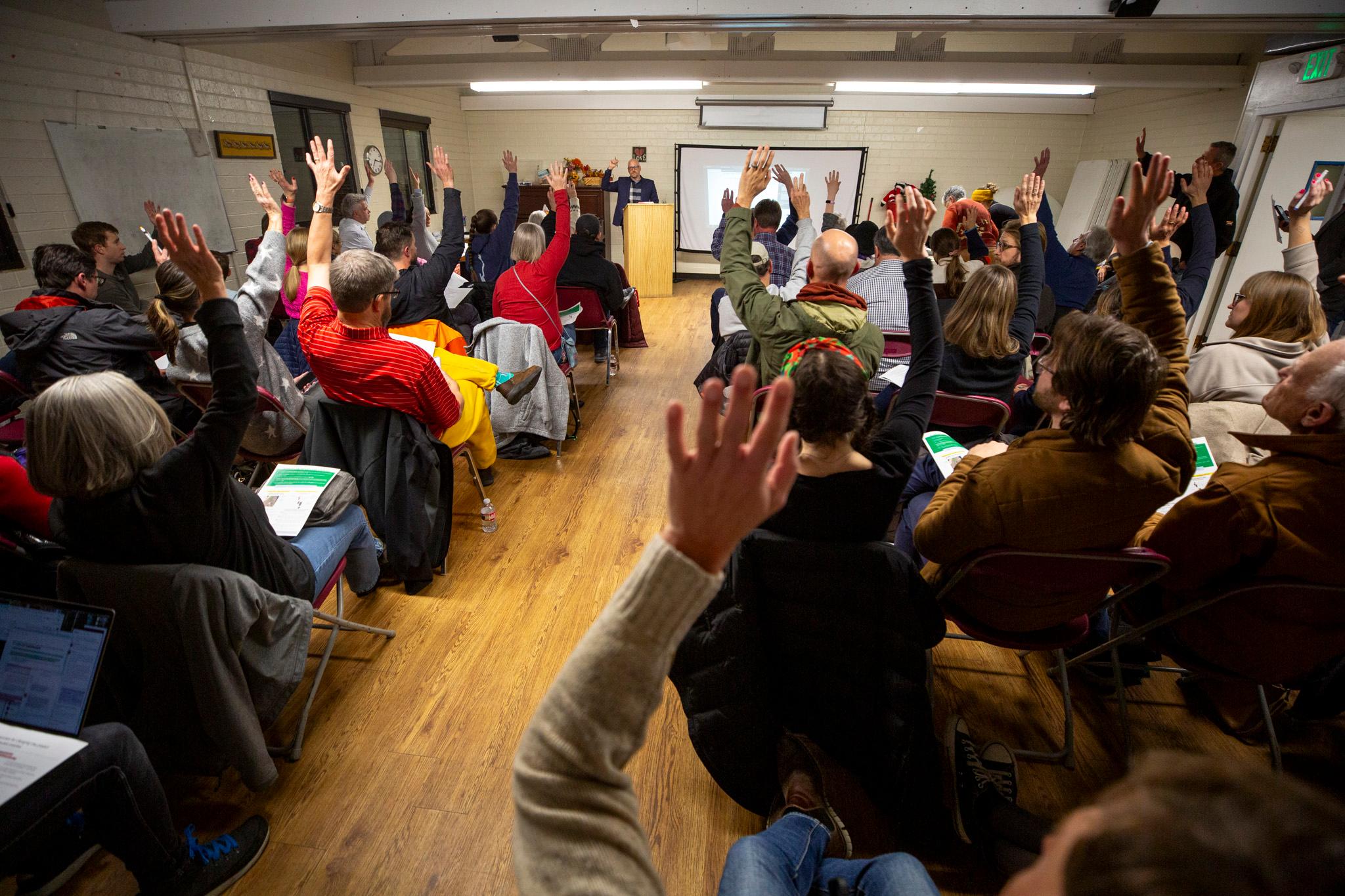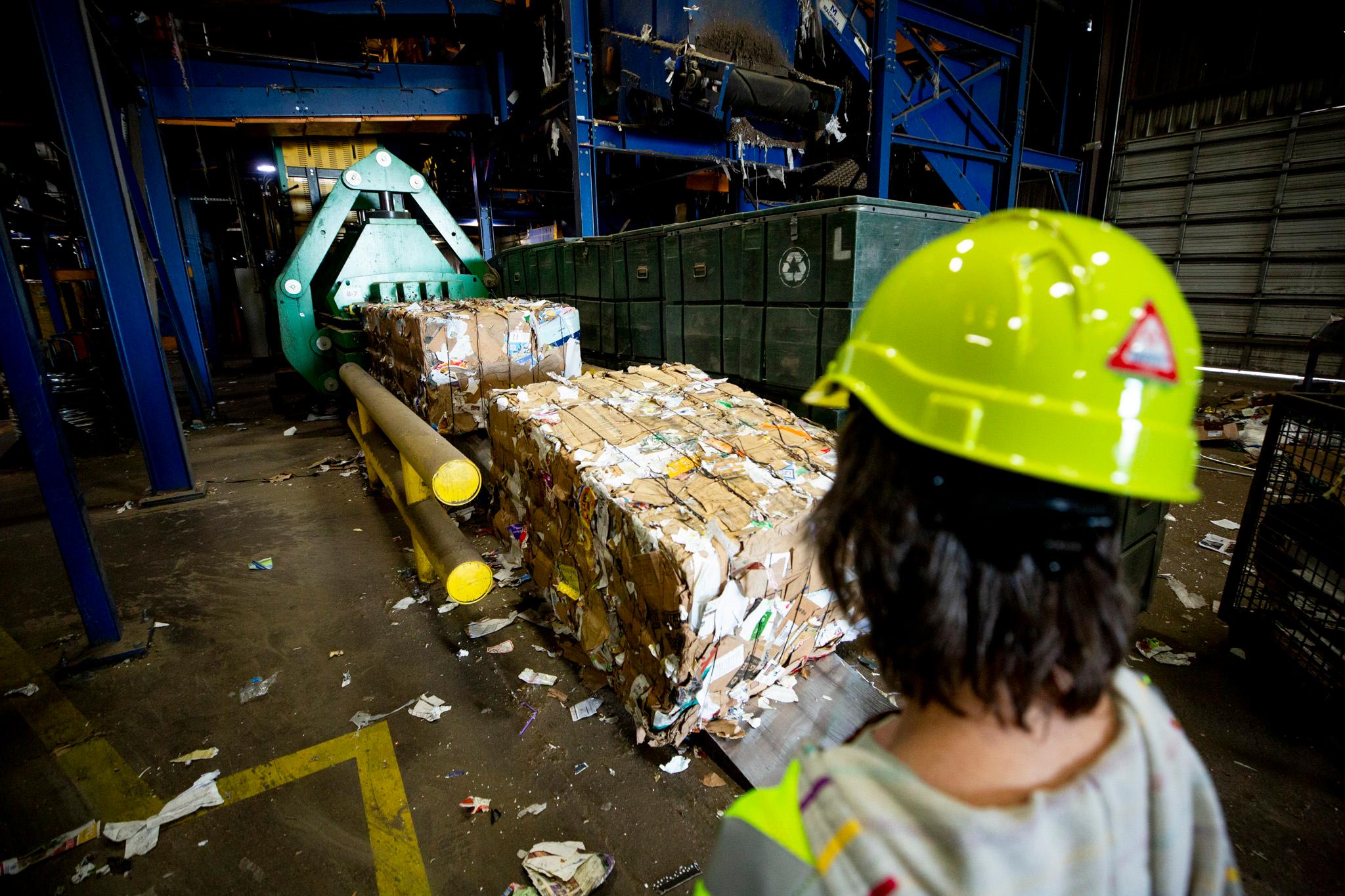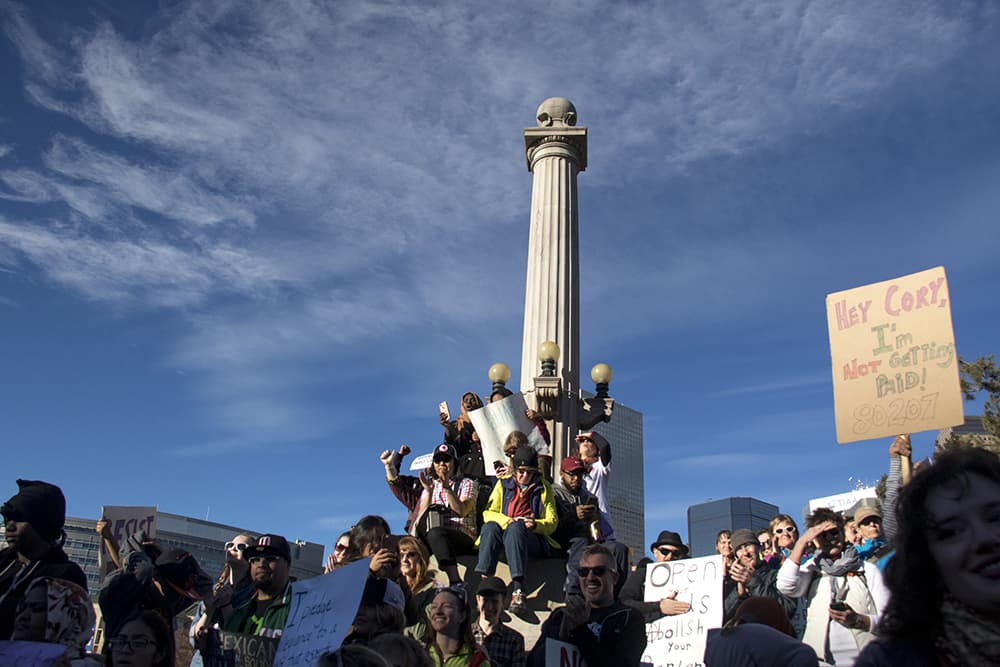
Activists have called for a nationwide general strike on Friday to protest President Donald Trump, and in Denver, there's a call to gather on the steps of the Colorado State Capitol at 10 a.m. and march to Sen. Cory Gardner's office as part of a "General Strike and March." And Occupy Denver is calling for a Not My President's Day General Strike on Monday.
"On Monday February 20, call in sick or take the day off," organizers wrote on the Facebook page. "Don't shop, don't eat out, don't show the Trump circus a lick of respect."
"On Presidents Day we'll be ungovernable. Attend a rally or organize your own, against fascism, racism and greed. Across the country we'll send a message: restore the people's values or no business as usual."
"General strike" has a kind of exotic feel. They happen in France or in Indonesia, not in the United States. What exactly is a general strike? What are they supposed to accomplish? And why aren't they part of our political cultural?
I put these questions to a labor historian.
Erik Loomis is an assistant professor of history at the University of Rhode Island and his areas of study include the American labor movement.
The first thing he told me is that he's pretty skeptical about Friday's general strike, in large part because it's directed by activists and radicals, not workers, and doesn't seem connected to existing worker movements.
"They seem to be saying, 'Let's shut things down,' because that's what they want to do anyway," he said.
Loomis wrote about the most famous American general strikes -- in Seattle in 1919 and in Oakland in 1946 -- for In These Times back in 2011 when Occupy Oakland was calling for a general strike. Both of those strikes were incredibly threatening to people in power and were crushed. The Oakland strike started with a strike by department store clerks for better wages and working conditions, and in December of that year, members of the typically more conservative American Federation of Labor joined them.
AFL workers from 142 unions around Oakland walked off their jobs — bus drivers, teamsters, sailors, machinists, cannery workers, railroad porters, waiters, waitresses, cooks. For over two days, Oakland shut down. Over 100,000 workers participated in the strike.
The strikers controlled Oakland. All businesses except for pharmacies and food markets shut down. Bars could stay open but could only serve beer and had to put their juke boxes outside and allow for their free use. Couples literally danced in the streets. Recently returned war veterans created squadrons to prepare for battle. Union leadership took a back seat to rank and file actions.
Loomis said the term "general strike" calls up radicalism, but the goals of the Oakland strike were not particularly extreme. They wanted the department stores to meet the demands of the striking clerks, and they also wanted to break the Republican political machine that controlled Oakland at the time, which had close ties to the department store owners.
The Oakland strike had big long-term consequences.
It led to the passage of the Taft-Hartley Act in 1947, which severely undermined the power of American labor. It allowed the adoption of "right to work" laws, now in place in 28 states, it restricted the right of workers to strike and it banned sympathy strikes.
That last provision is a major reason we don't have general strikes in the United States. It would be "disastrous" for a labor union to formally endorse and participate in a general strike, and the union could face steep fines.
Another reason is the general lack of working class solidarity in the United States.
"Working class solidarity in the U.S. has always been been undercut by racial divisions," he said. "You can't understand U.S. labor history without looking at racial divisions. White workers have chosen race solidarity above class solidarity. We saw this in the 2016 election."
There are other reasons, as well. In some European countries, there are just two or three large unions, and if they call out their members, well, you have a general strike. In the U.S., there are dozens and dozens of unions, even though union membership is lower than it's ever been. And American employers have been more aggressive in fighting unions, Loomis said.
Workers who participate in a general strike Friday -- or Monday or any day -- won't have any protection from being fired, and if participation is relatively low, the chances of repercussions are higher, Loomis said. Employers can't fire tens of thousands of people, but they can fire a few dozen "trouble-makers."
It's not clear how many people will participate in these general strikes. There have been some lunchtime weekday protests outside Gardner's office, but the massive rallies have been on Saturdays, when lots of people don't work anyway. Less than 300 people said they're going to Friday's general strike on Facebook, while Monday's event has 166 people who said they were going.
The Day without Immigrants protest might be the real inheritor of the general strike's promise and threat.
On Monday, thousands of people in Milwaukee held a "Day without Latinos, Immigrants and Refugees" rally to protest immigration crackdowns by Milwaukee County Sheriff David A. Clarke Jr., an outspoken supporter of the president. People then called for a national "Day without Immigrants" shutdown on Thursday, with immigrants, regardless of legal status, staying home from work and school, not opening their businesses and not spending money in any way.
Dozens of prominent restaurants in Washington, D.C., plan to close. In Philadelphia, Minneapolis, Austin and other cities, workers have said they'll stay home, and restaurant owners are closing their doors out of necessity but also solidarity for their largely immigrant workforce.
There's not a lot of evidence online of immigrants in Denver planning to participate, and a few activists I spoke to hadn't heard much either. But it's also not the kind of thing that requires a Facebook group to organize. So we'll just have to see what happens today. (Update: Some Denver restaurants and job sites closed or were short-staffed, and teachers in some schools reported half-empty classrooms.)
Loomis said this protest -- if a lot of people participate -- would have more in common with a general strike than the events calling themselves general strikes.
Why?
"The workers themselves are leading it," he said.
Immigrants as a group share common interests and common vulnerabilities, and working together to make the impact of their absence felt, they have collective power, Loomis said.
"It's very organic," he said. "It's very real to those workers. They're saying this is an expression of our power and our interest. It's not a bunch of radicals telling people what to do."

